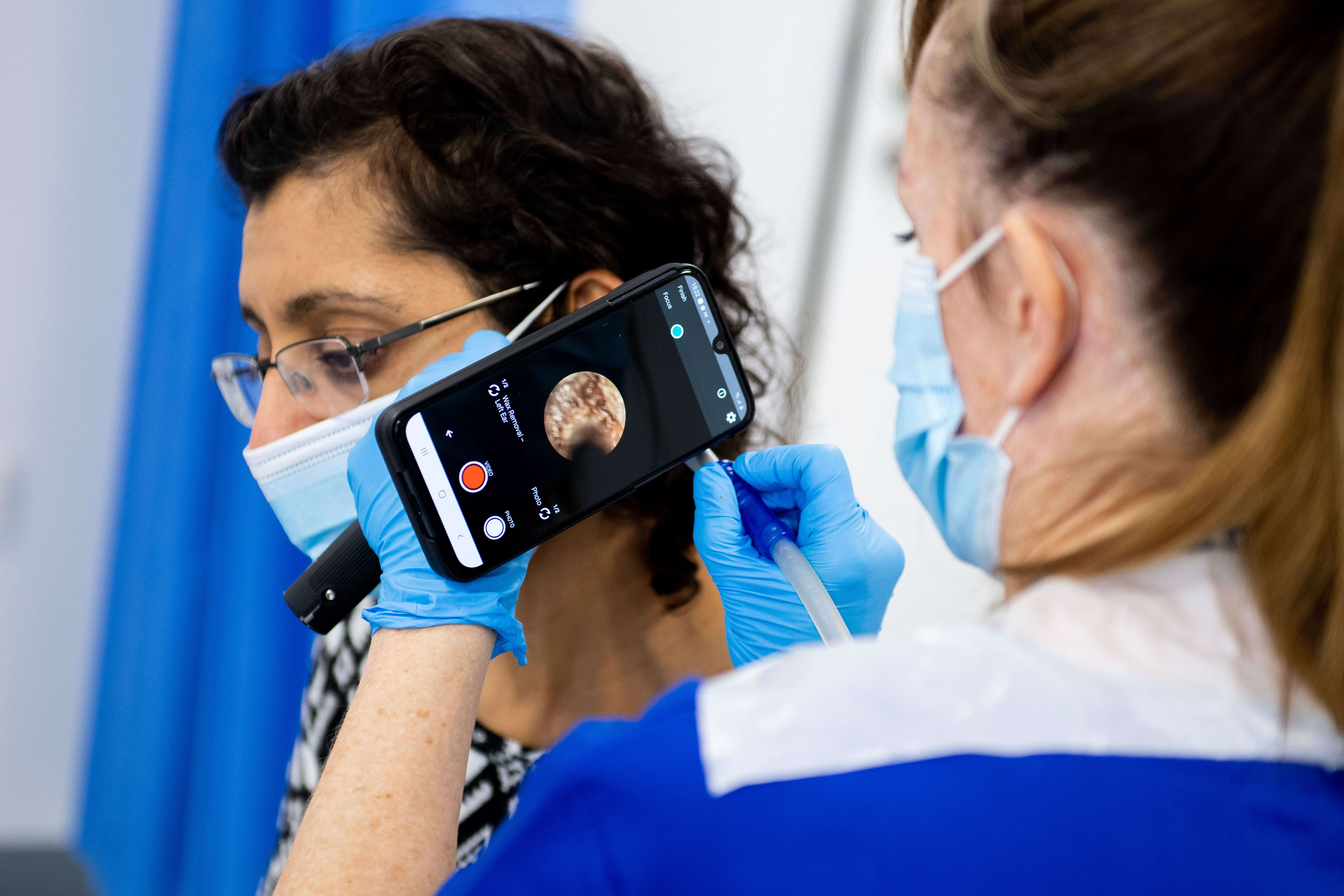What are the Signs of an Ear Infection? How is it Treated?

Ear infections can be uncomfortable and disruptive, affecting both children and adults. Recognising the signs early and understanding how to treat them is important for managing discomfort and preventing complications.
In this blog, we’ll discuss ear infection symptoms, prevention strategies, treatment options, and the role of ear microsuction in preventing ear infections. By understanding the basics of ear infections, we can better protect ourselves and our loved ones from unnecessary discomfort and potential complications.
What are the Symptoms of an Ear Infection?
Ear infection symptoms often show-up in several discomforting ways, including-
● Pain inside the ear
● High temperature
● Nausea or vomiting
● Fatigue
● Difficulty hearing
● Discharge from the ear
● Feeling of pressure or fullness
● Itching and irritation in and around the ear
● Scaly skin in and around the ear
Children and infants may show additional signs such as pulling at the ear, irritability, loss of appetite, and balance issues.
While most ear infections resolve within a few days, it's important to seek medical advice if symptoms persist beyond a week or if there's a high temperature.
How to Prevent an Ear Infection?
While it's not always possible to prevent ear infections entirely, certain measures can reduce the risk, especially for inner ear infections.
● Ensure you are updated on all recommended vaccinations.
● Refrain from inserting cotton wool buds or fingers into your ears.
● Use earplugs or a swimming hat while swimming.
● Take precautions to prevent water or shampoo from entering your ears during showers or baths.
● Address any conditions affecting your ears, such as eczema or allergies to hearing aids.
How to Treat an Ear Infection on Your Own?
If you have an ear infection, there are steps you can take at home to relieve discomfort-
● Use over-the-counter painkillers like paracetamol or ibuprofen (excluding aspirin for children under 16).
● Apply a warm or cold compress to the affected ear.
● Gently clean any discharge with cotton wool.
However, it's important to avoid inserting objects like cotton buds into the ear and to prevent water or shampoo from entering the ear canal. Decongestants and antihistamines aren't recommended for treating ear infections as they offer little benefit.
What are the Treatment Options for an Ear Infection?
Ear infection treatment varies depending on the type and severity-
● Inner ear infections often resolve without antibiotics, but they may be prescribed if symptoms persist or if there's fluid discharge.
● Outer ear infections may require antibiotics, steroids, or antifungal eardrops, or in severe cases, oral antibiotics. Drainage of pus from boils may also be necessary.
Following medical advice closely and administering eardrops correctly is essential to ensure effectiveness.
How Can Ear Microsuction Prevent Ear Infections?
Ear microsuction is a secure and efficient method for excessive earwax removal, which, if neglected, may lead to ear infections. By delicately suctioning out wax build-up, this procedure maintains ear hygiene, substantially diminishing the likelihood of blockages and infections. With its careful approach, ear microsuction protects against potential ear-related complications, ensuring optimal auditory health and comfort.
Prevent Ear Infections with Pearl Chemist Group’s Ear Microsuction
It's important to remain cautious about your ear health by recognising symptoms early and seeking appropriate treatment when necessary. By prioritising regular check-ups and maintaining cleanliness, we can reduce the risk of ear infections and ensure optimal hearing.
Trust in our expertise and commitment to your well-being and book an appointment with us for ear microsuction in Northcote, Epsom, Haria, Tooting, Earlsfield, Merton, and other convenient locations across South London.






